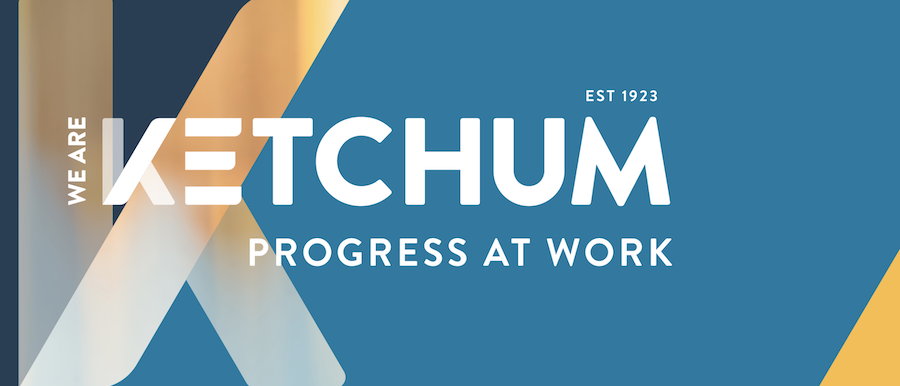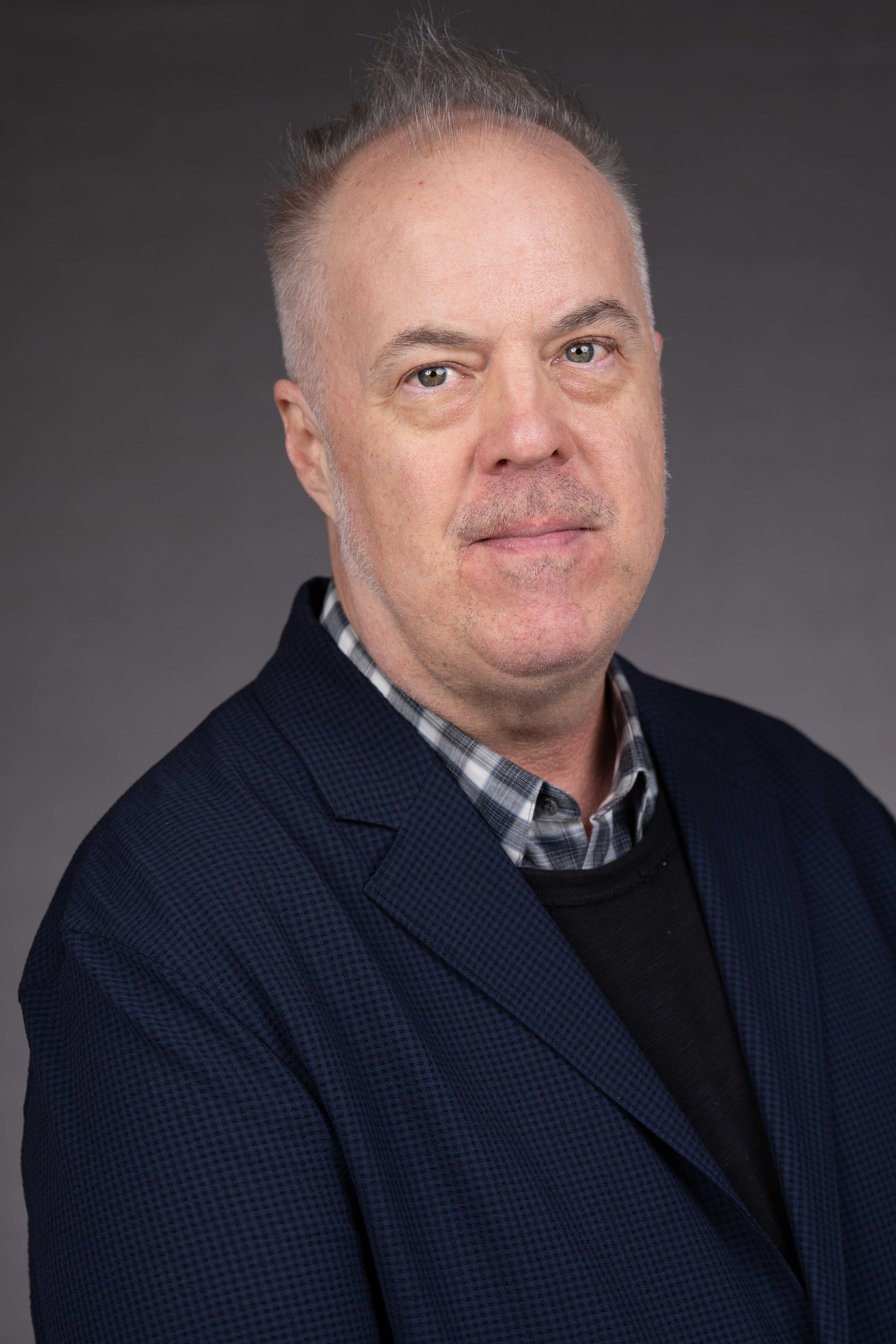As Ketchum Turns 100, Its U.S. CEO Looks Ahead
By John Elsasser
August 2023
Join us live on PRSA's LinkedIn for a conversation between Editor-in-Chief John Elsasser and Jim Joseph, U.S. CEO, and global chief marketing and integration officer at Ketchum. Tune in: Thursday, Aug. 24 at 1 p.m. ET. Register here.
Ketchum is celebrating its 100-year anniversary. With the centennial celebration, the agency unveiled a brand refresh to align with their revamped motto — “Progress at Work,” positioning that they hope will propel them into the next 100 years.
Ketchum is already on a roll. At the 2023 Anvils on June 8, PRSA presented Ketchum with a Silver Anvil for Best Mega Agency (revenue over $200 million).
Here, Jim Joseph, U.S. CEO, and global chief marketing and integration officer, discusses the agency’s brand refresh, the evolution of ROI and the importance of employee engagement.

You refreshed the Ketchum brand with the new motto: “Progress at Work.” How did you land on this?
We did a thorough scan of the industry and how agency brands were talking about themselves. And we took an honest look in the mirror at how we were talking about ourselves.
We did this under the lens of coming out of a pandemic. The world has permanently shifted. We looked at what agency brands promised — definitive results. And we realized that’s a hard thing to promise in a world that is so uncertain, so divided [and] struggling with major issues like, “What’s the workforce of the future? What’s the office of the future? What’s technology going to do to us? How do we embrace technology?”
We realized that those definitive statements of, “We will get you this,” just aren’t honest. [But] we did stick to our heritage of empathy and intelligence and said, “Well, what does that mean? What do we promise?”
And we said, “Whatever your goal might be, we can promise you progress. We will progress you toward your goals. If you’re trying to become the leader in blank, or if you have a sustainability goal or a DE&I goal, or whatever your goal might be, we can promise you progress.”
When you step into the [Ketchum] office, you’re going to see progress at work. When you come join this organization as a colleague, you’re going to progress and you’re going to make progress at work.
It’s also how we can describe our next 100 years. We’re going to make progress — for our clients, for ourselves, for the industry and hopefully for the world.
How do you see return on investment continuing to evolve, especially when it comes to showing the value of communications?
I don’t think ROI is as one-dimensional as we used to think, [in other words] how much money you’re going to get back for what you put in. In the world where we’re striving for progress, ROI may look very different from objective to objective, from client to client, from initiative to initiative.
It’s about adding value. And value can be measured as a return on a lot of different things — employee satisfaction, brand health, brand reputation. Sure, ultimately, probably for the client, it’s going to be some sort of sales metric. But there are lots of other interim metrics that get you to sales growth, for example.
As an industry, we can’t always measure ROI in terms of sales. We’re at different parts of the funnel. But we can measure the interim steps that get you there.
How do you see employee engagement evolving? How will PR agencies retain their best people?
It has to be the No. 1 priority. We’re in the client-service business, and ultimately, happy clients are what we’re striving for. And the path to get there is through engaged employees. When you have highly engaged employees, they do great work that produces results, which in turn produces happy clients and repeat clients.
If we learned anything through the pandemic, we learned that you had to put your employees first. You had to worry about their safety and their well-being, to make sure they were taken care of, that they could be productive.
And you mirror that with the next generation joining the workforce. They have a very different perception of how work fits into their lives. Employee engagement has to meet them on their terms.
We’ve seen organizations across every industry declare they’re going to go back to this or back to that. And it’s been rejected. Because that’s not where the employees are anymore.
Do Ketchum employees work on a remote or a hybrid schedule now?
We’ve been closely monitoring what the world is doing, what our industry is doing, what our sister agencies are doing [regarding work arrangements]. We feel strongly that our people need to be connecting with each other.
Being solo, at home on a video screen every day, is not a healthy way to engage with employees, a healthy way to do business, or a healthy way to grow your career. It is time to get back to the office to build back connections and to build an office experience. Especially for so many of our people who have joined during the pandemic and have not met many people IRL.
We have begun asking people to come into our offices for three days a week; ideally the three days they prefer. Of course, for many of those days the “office” might be a client office, an industry event or a training day. We are also stressing flexibility in the day to accommodate the many demands of life and family including start/end time, managing commutes efficiently, number of in-office hours during the day, etc.
What do you think the biggest disrupter for PR agencies will be in the near future?
A lot of people talk about technology being the disrupter, in terms of artificial intelligence such as ChatGPT. I don’t see that as a disrupter. I think it’s more of an enabler — the next thing that we’re going to use to better engage with our stakeholders.
I think what’s more likely to be the disrupter is the changing workforce and the changing way that we work. [It’s] going to disrupt what we’ve often considered the norms of how we do our work and how we engage with each other, how we get our work done. Now, technology will certainly play a big part in that.
What does the PR agency of the future look like?
Highly tech-enabled. Highly engagement-focused, like earned engagement, as opposed to earned impressions or earned attention.
But PR will remain focused on the earned portion. That is what we do so well. But it’s going to become more and more about how we’re engaging, how we’re changing behavior, how we’re driving results, whatever that result is — as opposed to, perhaps, some of the more traditional things that we would focus on.
That’s why we’re nimble, why we’re culture-first. That’s why we understand what’s going on in the world so well and we’re able to turn on a dime. I think that will always remain.



